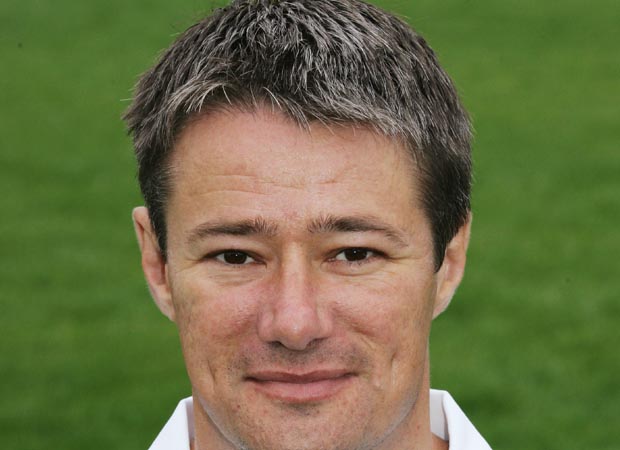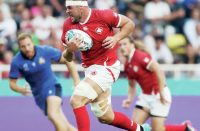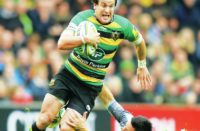 Looking back, it was probably touch and go as to whether I should have played in the famous 1990 Grand Slam decider against England.
Looking back, it was probably touch and go as to whether I should have played in the famous 1990 Grand Slam decider against England.
Between the win over Wales in Cardiff and the Calcutta Cup clash at Murrayfield, where the Five Nations title was on the line, I’d played for my club, Hawick, and ended up getting my shoulders crushed in a tackle.
Most of my Scotland team-mates decided to rest that weekend but Hawick were struggling and I wanted to help them out. My collarbone popped out in the collision and, as you can imagine, I was in a lot of pain. I wasn’t able to do much and when the national squad reconvened on the Wednesday I was sent off to do tackling practice with the forwards.
The next day I was in agony and barely able to lift my arms above my shoulders. I was desperate to play, though, and the adrenaline of a big match got me through. It was rather ironic, however, that for the match-winning try, which most people still remember me for to this day, I had to raise my arms up in the position that was the most painful to catch the ball as it bounced back from Gavin Hastings’ kick.
Obviously it was great to score and to be involved in such a positive outcome but, overall, I don’t think I had a good game.
Occasionally I get the chance to reminisce with my old team-mates, mainly at Bill McLaren Foundation golf events.
Bill played a big part in my early rugby life, he used to take our school rugby sessions on a Wednesday afternoons and it was a great buzz. If you did something well and he singled you out for praise it was a real case of one-upmanship over the rest of the class.
Rugby was all there was to do in Hawick. Growing up there you knew about all the traditions and all the great players who came from the town and it kept you very humble.
I had a strong family around me – I was one of five boys who were always competing against each other – and that, plus the environment Hawick created, were the reasons why I was able to achieve what I did in the game.
At Hawick you were surrounded by loads of good players so you knew you had to work hard to get on.
After the game went professional I stayed in Scotland for a few seasons before moving to France to join Grenoble.
I wasn’t really enjoying my rugby and after one season joined Leeds where I was part of the squad that won promotion to the Premiership in 2000/01.
Whilst at Leeds I got the assistant academy manager’s job and I called it a day on the playing front even though I was still feeling in pretty good shape.
The Leeds job was my first full-time appointment in coaching and it was just magic to be working with Stuart Lancaster. His drive and determination were immediately apparent and the time and effort he put into his personal development was phenomenal.
It was great for coaching as a profession that he was given the chance with England because he has gone on to prove that you don’t have to have an international playing pedigree to be a good coach.
From Leeds I went on to enjoy four fantastic years at London Irish, at the most successful period in the club’s history, before moving into my present role as head of talent at the Scottish Institute of Sport in June 2008.
-as told to Jon Newcombe























